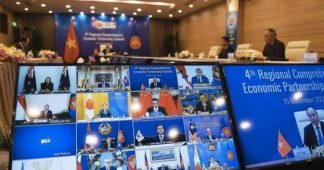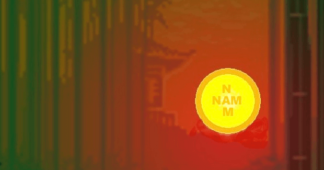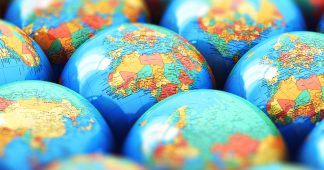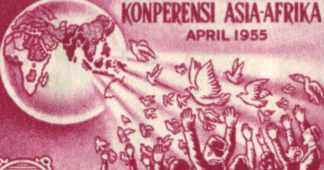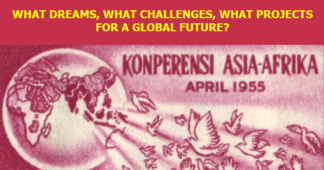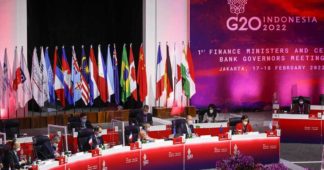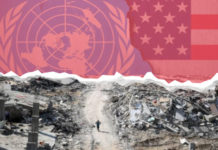GRIC (Group of Research on Identities and Cultures) – Université Le Havre Normandie and CHAC (Centre of History of Contemporary Asia) – Université Paris 1 Panthéon-Sorbonne
THE RISE OF ASIA 2023: Global Crisis – what impacts and what perspectives for Asia and the world?
Offline and online international and inter-trans-disciplinary conference, Paris and Le Havre, France, February 8-10, 2023.
The conference is open to individual and group presentation. The dealine of abstract submission is December 31, 2022. The call for abstracts and other information are available at https://bandungspirit.org/
Link to abstract submission: https://bandungspirit.org/IMG/
INTRODUCTION
The war in Ukraine, in all its dimensions, is producing alarming cascading effects to a world already battered by COVID-19 and climate change. Serious damage is being done to the global economy, and particularly to vulnerable people and developing countries.
The United Nations Secretary-General has established a Global Crisis Response Group on Food, Energy and Finance in the UN Secretariat, with the following policy recommendations:
On Food: We urge all countries to keep markets open, resist unjustified and unnecessary export restrictions, and make reserves available to countries at risk of hunger and famine.
On Energy: The use of strategic stockpiles and additional reserves could help to ease the energy crisis in the short term. But the only medium- and long-term solution is to accelerate the deployment of renewable energy.
On Finance: We need urgent action by the G20 and international financial institutions to increase liquidity and fiscal space so that governments can provide safety nets for the poorest and most vulnerable.
(UNCTAD, Global crisis, https://unctad.org/global-
The global crisis described above has put Asia to the fore. Among the G20 members, eight of them are Asian and Eurasian: China, India, Indonesia, Japan, Russia, Saudi Arabia, South Korea and Turkiye. Some of them are granary of food (Russia, Thailand, Vietnam…), of energy (Russia, Saudi Arabia…), of finance (China, Japan…). With the Pacific countries, Asia has set-up the Regional Comprehensive Economic Partnership (RCEP), a free trade agreement involving Australia, Brunei, Cambodia, China, Indonesia, Japan, South Korea, Laos, Malaysia, Myanmar, New Zealand, the Philippines, Singapore, Thailand, and Vietnam. The 15 member countries account for about 30% of the world’s population (2.2 billion people) and 30% of global GDP ($29.7 trillion), making it the largest trade bloc in history. They have the necessary sources to be self sufficient among themselves: raw materials, human resources, technology, finance. The intra-Asia trade and investment have become more important than the extra-Asia ones. The major players of global geopolitics are led by Asian countries: BRICS, NAM, SCO…
So, what are the impacts of global crisis for Asia and the world? How States and societies react to the climate changes, pandemic Covic-19 and Russo-Ukrainian war? What perspectives coming out from the crisis? Will it lead to a new world order? Will the hegemony of the West continue to function? Will a new equilibrium of bipolar world be achieved? Will multipolarism prevail? What roles played by regional and international institutions such as EU, NATO, BRICS, NAM, SCO, ECOWAS, ASEAN, CELAC, MERCOSUR, UNASUR…? What actions taken by social movements and civil society organisations facing the crisis: trade unions, identity-based movements, ethnic and religious movements, indigenous communities, feminists, ecologists, cooperatives…?
It is to discuss about those such questions that the 7th edition of the Rise of Asia Conference Series is organised. It encourages the participation of scholars from a wide range of scientific disciplines (area studies, cultural studies, ecology, economics, geography, history, humanities, languages, management, political and social sciences…) and practitioners from diverse professional fields (business, civil society, education, enterprise, government, management, parliament, public policy, social and solidarity movements…) as well as artists and writers, based in diverse geographical areas (Africa, North, Central and South America, Australia, Asia, the Caribbean, Europe, Oceania, Pacific…).
Special sessions will be dedicated to the outcome and perspective of the Bandung-Belgrade-Havana Conference and the G20 Summit that took place in Indonesia in November 2022.
More information at https://bandungspirit.org/
Link for abstract submission: https://bandungspirit.org/IMG/
We remind our readers that publication of articles on our site does not mean that we agree with what is written. Our policy is to publish anything which we consider of interest, so as to assist our readers in forming their opinions. Sometimes we even publish articles with which we totally disagree, since we believe it is important for our readers to be informed on as wide a spectrum of views as possible.
